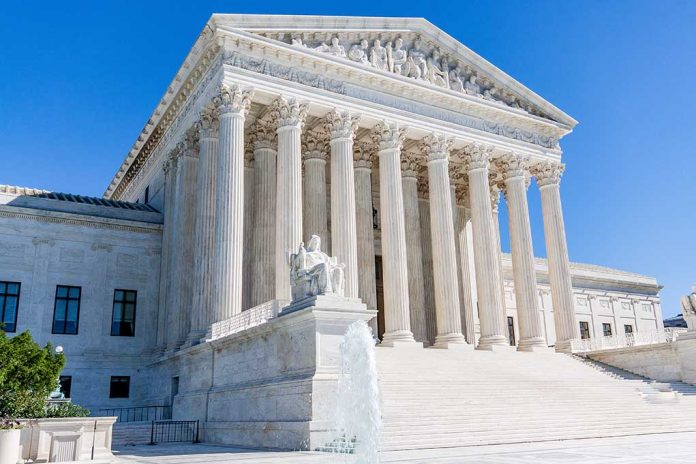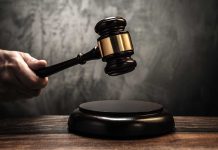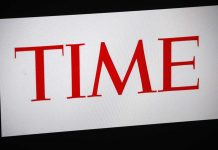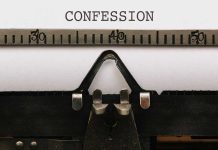
(RightWing.org) – The Supreme Court of the United States (SCOTUS) has managed to distance itself from most of the controversy surrounding the January 6, 2021 (J6) riot at the US Capitol Building, with two notable exceptions.
On January 18, the nine justices heard oral arguments in former President Donald Trump’s bid to avoid criminal prosecution for his alleged effort to overturn the results of the 2020 presidential election by claiming absolute immunity.
Likewise, SCOTUS is considering an obstruction charge filed against a J6 participant in a case that could impact hundreds of individuals awaiting trial or previously convicted.
Supreme Court Considers Tossing Obstruction Charge Filed Against Hundreds of J6 Participants
On September 11, 2023, Joseph Fischer filed a petition for a writ of certiorari, asking the Supreme Court to consider whether the US Circuit Court of Appeals for the District of Columbia erred when it reinstated charges against him under 18 U.S.C. § 1512(c) (“Witness, Victim, or Informant Tampering”). SCOTUS granted the request and heard oral arguments on April 16.
Section 1512(c) is part of the Sarbanes-Oxley Act of 2022, a measure passed with bipartisan public support to improve public disclosure and auditing requirements in the wake of the Enron scandal and cases involving corporate recordkeeping practices in the early 2000s.
Fischer’s attorney, Jeffrey Green, argued that federal prosecutors only charged defendants under § 1512(c) for crimes involving evidence tampering before the J6 cases. He also theorized that the government would turn that statute into a “dragnet” to entrap other defendants in the future if the Supreme Court didn’t act and clarify the law’s proper application.
Green conceded that other statutes applied to the crimes committed on January 6. However, he stressed that § 1512(c) wasn’t one of them.
US Solicitor General Elizabeth Prelogar argued on behalf of the government. She told the justices that Fischer’s assertion that § 1512(c) only applied to evidence tampering lacked foundation under the statute’s written text.
Liberal Justice Elena Kagan appeared to agree with Prelogar’s argument. According to her, the courts could interpret § 1512(c) in two different ways. First, the statutory language prohibits conduct that “otherwise obstructs a proceeding,” or second, it bars action that “otherwise spoils evidence.” She explained that if the statute’s drafters wanted to limit the law’s application to the second application (as Fischer argued), there were “multiple ways” they could have made that clear.
However, Chief Justice John Roberts disputed that point. He stressed that the Court had recently emphasized that the first portion of a statute is “controlled and defined” by the wording that immediately followed it. In other words, Roberts thought the second portion of the law clarified the proper application of the preceding section instead of creating an either/or situation, as Kagan claimed.
Court watchers predict that the SCOTUS won’t hand down its ruling until June, and they expect a split decision based on oral arguments.
Copyright 2024, RightWing.org






















